MercoPress. South Atlantic News Agency
Tag: Rodolfo Nin Novoa
-
Monday, July 6th 2015 - 08:49 UTC
Uruguay looking to increase trade and investments with India
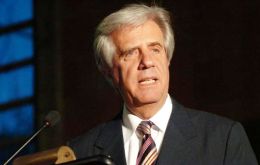
Uruguay's president Tabare Vazquez is planning to visit India next year, while foreign minister Rodolfo Nin Novoa is scheduled to attend the India-Latin-American conference next October. The move is seen as an effort by Uruguay to increase its trade opportunities and access new markets, given the current difficulties to forge an agreement with the European Union.
-
Thursday, July 2nd 2015 - 06:13 UTC
Mercosur summit will establish 'action plan' to speed discussions with Europe
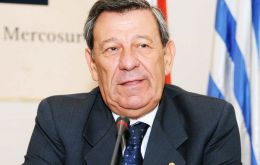
The Mercosur Council will establish an “action plan” at the next Mercosur presidential summit scheduled for 16/17 July in Brasilia, when the group's chair for the next six months will be handed to Paraguay by Brazil. Other issues on the agenda besides making Mercosur more flexible include addressing the 'special regimes' and the 'free trade zones' in the area, revealed Uruguay's foreign minister Rodolfo Nin Novoa.
-
Thursday, June 18th 2015 - 07:08 UTC
Mercosur/EU hope 'for positive news in third quarter' despite members' domestic problems
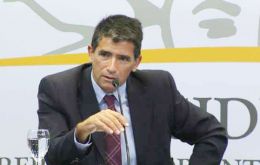
The European Union also has difficulties in completing a draft proposal of goods and services to exchange with Mercosur in the search for a long delayed trade agreement between the two blocks, revealed Uruguayan vice-president Raul Sendic during a report to the Senate on his recent 10/11 June trip to Brussels for the Celac/EU summit. However in “the third quarter of the year there should be positive news”.
-
Wednesday, June 10th 2015 - 06:53 UTC
Uruguay says Brazil and Paraguay are ready to sign trade accord with Europe
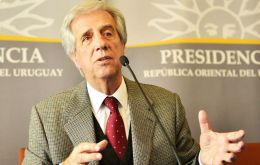
Uruguayan president Tabare Vazquez said that Uruguay, Brazil and Paraguay are ready to sign the long delayed trade and cooperation agreement between Mercosur and the European Union. Such an agreement has become one of the cornerstones of Vazquez presidency faced with falling exports and limited markets.
-
Monday, June 8th 2015 - 09:11 UTC
Uruguay's vice-president travels to Brussels to advance Mercosur/EU trade talks
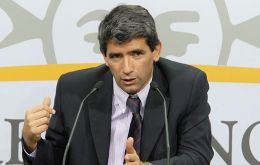
Uruguay's vice-president Raúl Sendic and Foreign minister Rodolfo Nin Novoa will be attending this week's summit of EU and Celac leaders scheduled in Brussels, which will also address in the sidelines, current EU/Mercosur negotiations for a wide ranging trade agreement.
-
Friday, June 5th 2015 - 21:47 UTC
Uruguay sacks ambassador over disagreements on Mercosur/EU trade policy
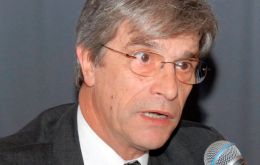
Uruguayan president Tabare Vazquez removed the country's ambassador before the European Union following comments on Mercosur/EU trade and cooperation negotiations which contradicted recent statements by foreign minister Rodolfo Nin Novoa regarding trade strategy and policy.
-
Tuesday, May 26th 2015 - 06:44 UTC
Argentina invokes unity and rejects proposal for a more 'flexible' Mercosur
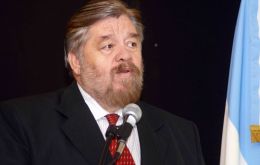
Brazil and Uruguay's plan for a more 'flexible' Mercosur to speed negotiations for an encompassing long delayed trade agreement with the European Union have stumbled with the first official reaction from Argentina, which does not agree with the tariffs' proposals policy or individual trade initiatives from member countries.
-
Thursday, May 21st 2015 - 07:27 UTC
Uruguay and Brazil summit to consider a more flexible Mercosur
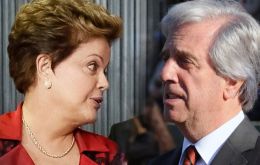
Uruguayan president Tabare Vazquez will be meeting his peer, Dilma Rousseff in Brasilia this Thursday to address a dense bilateral agenda, and more specifically the workings and future of Mercosur, in search for a more flexible group, open to agreements with third parties.
-
Friday, May 15th 2015 - 07:53 UTC
Uruguay convinced Mercosur will be more flexible regarding trade accords with third parties
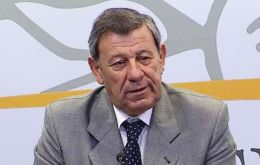
Mercosur countries have reached a basic consensus to look for mechanisms that will allow individual members to negotiate trade agreements outside the block, announced Uruguay's foreign minister Rodolfo Nin Novoa, who has been leading a strong campaign (with Brazilian support) on the issue.
-
Wednesday, May 6th 2015 - 07:04 UTC
Uruguay calls for an end to Mercosur 'hollow rhetoric' which undermines jobs
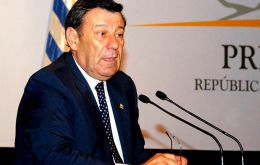
Uruguay's foreign minister Rodolfo Nin Novoa called on Mercosur to overcome “hollow rhetoric” and advance towards the elimination of barriers which restrict access to other markets and intra-region trade.
